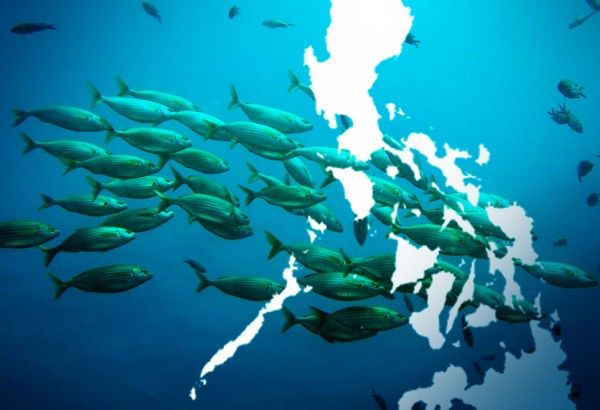Philippines named one of 5 champions for migratory species

MANILA, Philippines — The Philippines has been named as one of the five “migratory species champions” in the world for its exemplary contribution in the global effort to protect migratory animals, particularly the whale shark or butanding, the Department of Environment and Natural Resources (DENR) said.
Also recognized by the Convention on the Conservation of Migratory Species of Wild Animals (CMS) were the city of Abu Dhabi in the United Arab Emirates, the European Commission, Germany and Monaco.
The awarding ceremony, dubbed “Champions’ Night,” was held last Sunday and forms part of the 12th Session of the Conference of Parties to CMS (COP12), which is ongoing at the Philippine International Convention Center in Pasay City.
DENR Undersecretary Rodolfo Garcia accepted in behalf of the country the award, which recognizes the Philippines for its efforts to conserve the whale shark (Rhincodon typus).
Garcia said the so-called “gentle giants of the sea” have become an important component of the country’s growing wildlife tourism industry, which contributed 8.2 percent to the country’s gross domestic product.
Garcia expressed hope the Philippines and other “champions” will inspire other parties to the CMS to contribute to the global effort to conserve migratory species and their habitats.
“We need more champions in our continuing fight against wildlife hunting, habitat loss, pollution and wildlife trade,” he added.
Meanwhile, the Environment Agency of Abu Dhabi was recognized for its contribution in the conservation of dugongs and their habitats, and the birds of prey in Africa and Eurasia from 2015 to 2019.
Abdullah Eisa Zamzam, the agency’s assistant secretary for operations, underscored the need for concerted efforts among nations to protect migratory species.
“No matter how committed and well-resourced our country may be, long-term conservation of migratory animals can only be achieved by engaging with other countries through international cooperation and closely coordinating conservation activities across each species’ range,” Zamzam said.
Stefan Leiner, head of the biodiversity unit of the European Commission and head of the European Union delegation, accepted the “Champion Plus” award for the commission for its task force on illegal killing, taking and trade of migratory birds in the Mediterranean.
“I am very honored to receive on behalf of the European Commission the CMS Champion Plus Award for the Commission’s support to the work of the CMS Secretariat, in particular its Task Force on Illegal Killing, Taking and Trade of Migratory Birds in the Mediterranean,” Leiner said.
He added: “All wild bird species naturally occurring in the EU, including those listed in the CMS appendices are protected across the 28 member-states by the EU Birds Directive. However, many of these species, including migratory birds, still face many pressures and threats. Illegal killing, trapping and trade of birds, both within the EU and in its neighboring and partner countries, are still serious concerns. Within the EU we need to redouble efforts to fully implement the Birds Directive, which strictly prohibits such activities.”
On the other hand, Germany was honored for reconciling energy sector developments with migratory species conservation.
Rita Schwarzelühr-Sutter, parliamentary state secretary at the Federal Ministry for Environment, Nature Conservation, Building and Nuclear Safety, accepted the award in behalf of the German government.
“A holistically sustainable transformation of the energy system can only be achieved if it takes place in harmony with nature. This is why we are fully dedicated to the important work of the CMS Energy Task Force that is working towards that aim,” Sutter said.
Meanwhile, the Principality of Monaco was commended for its commitment to marine species conservation for the years 2018 to 2020.
Launched in 2014, the “Migratory Species Champion Program” has already recognized several institutions. It is open to governments, companies, organizations and individuals willing to make a financial commitment of at least three years for one or more specific initiatives that fall under the CMS family umbrella.
It offers initiatives that contribute to the implementation of a large program targeting a species, a group of species or a cross-cutting issue. – With Elizabeth Marcelo
- Latest






























